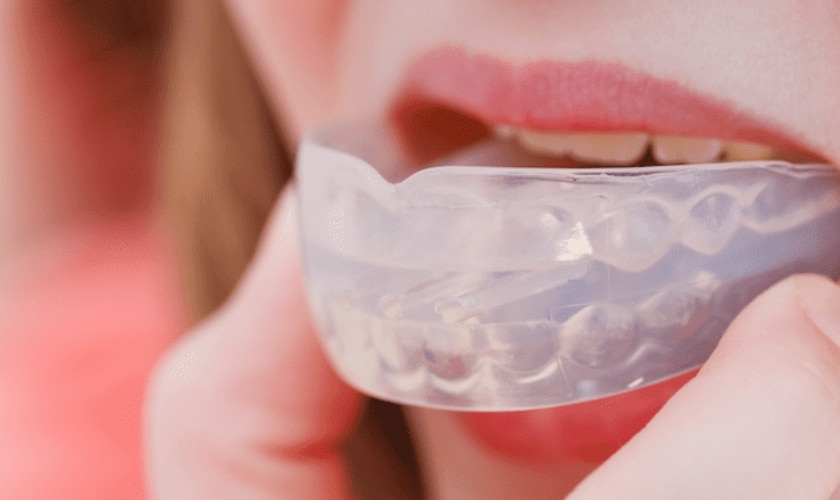Do you ever wake up with a sore jaw or a dull headache? You might be clenching or grinding your teeth at night, a condition called bruxism. If left untreated, bruxism can lead to serious dental problems and affect your overall sleep quality.
Nightguards are an effective solution for bruxism. These custom-made mouthpieces create a barrier between your upper and lower teeth, preventing them from grinding together. But how exactly can a nightguard improve your life? Let’s delve into the many benefits of wearing one.
Protect Your Pearly Whites
Bruxism can wreak havoc on your teeth. The constant friction caused by grinding can wear down the enamel, the hard outer layer that protects your teeth from decay. This can lead to increased sensitivity, chipped teeth, and even cracked teeth. Nightguards act as a shield, absorbing the force of grinding and preventing direct contact between your teeth.
Say Goodbye to Morning Headaches
Clenching your jaw throughout the night can put a lot of strain on the muscles in your face and head. This tension often translates into headaches upon waking up. Nightguards help to relax these muscles, reducing tension and minimizing the frequency and intensity of headaches.
Improve Your Sleep Quality
The constant grinding and clenching associated with bruxism can disrupt your sleep cycle. You might not even realize you’re waking yourself up with these noises, but they can significantly impact the quality of your rest. Nightguards can dramatically improve your sleep by preventing these disruptions, allowing you to sleep more soundly and wake up feeling refreshed.
Reduce Jaw Pain and TMJ Issues
Bruxism can also contribute to temporomandibular joint (TMJ) disorders. The TMJ is the joint that connects your jaw to your skull, and problems with this joint can lead to pain, clicking sounds, and difficulty chewing. Nightguards can help to alleviate TMJ pain by reducing the stress placed on the joint during sleep.
Enhance Your Overall Wellbeing
The benefits of wearing a nightguard extend far beyond just your oral health. Improved sleep quality, reduced headaches, and less jaw pain can all contribute to a better overall sense of well-being. You might find yourself feeling more energized, focused, and ready to take on the day.
Not Just for Grinders
Nightguards aren’t just for people who grind their teeth. They can also be beneficial for those who clench their jaw habitually, even if they don’t grind. Clenching can put a similar strain on the jaw muscles and lead to headaches and TMJ problems. Additionally, nightguards can help to protect your teeth from other nighttime habits, such as nail-biting or teeth-tapping, which can damage your teeth over time.
How to Know if You Need a Nightguard
If you experience any of the following symptoms, you might be a candidate for a nightguard:
- Waking up with a sore jaw or facial pain
- Frequent headaches, especially upon waking
- Teeth sensitivity
- Worn-down or chipped teeth
- Clicking or popping sounds in your jaw
- Difficulty chewing
If you suspect you might be grinding or clenching your teeth at night, talk to your Jupiter dentist. They can assess your situation through a dental exam and discuss your sleep habits. In some cases, your dentist might recommend a sleep study to confirm the presence of bruxism. Once a diagnosis is made, they can determine if a nightguard is right for you and create a custom-made mouthpiece to fit your teeth comfortably.
A Simple Solution for a Better Night’s Sleep
Nightguards are a simple and effective way to combat the effects of bruxism and improve your overall sleep quality. By protecting your teeth, reducing pain, and promoting better sleep, nightguards can have a significant positive impact on your life. Talk to your dentist today to see if a nightguard is right for you. In addition to nightguards, your dentist might also recommend relaxation techniques or stress management strategies to help address the underlying causes of bruxism.

